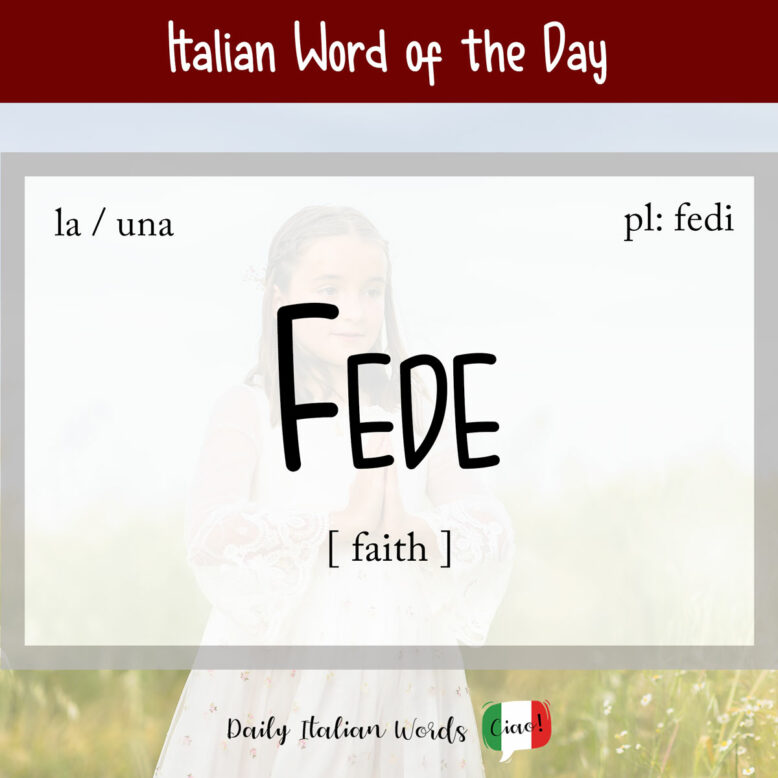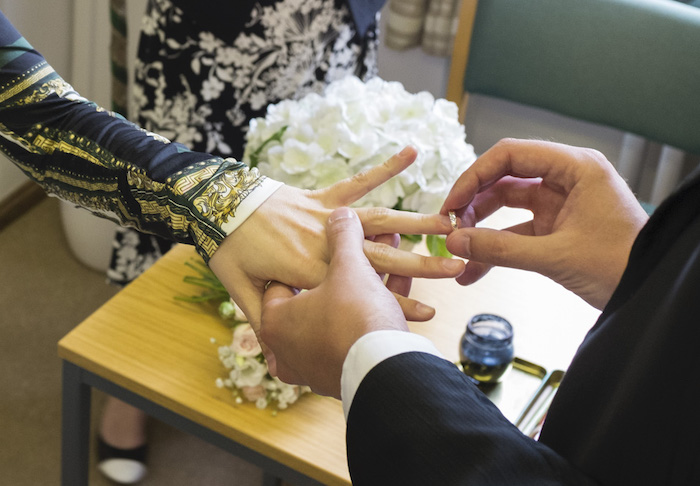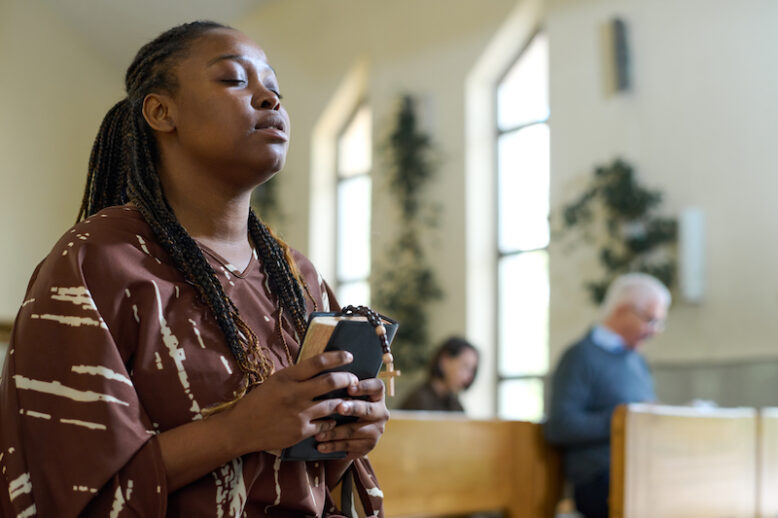Faith, or fede in Italian, can be defined as either the strong belief in something based on spiritual conviction rather than hard proof, or the complete trust in someone or something.

The word can be traced back to the Latin fidem, which ultimately comes from the Proto-Indo-European *bʰeydʰ-.
Fede is a feminine noun that takes the following definite and indefinite articles:
- la fede = the faith
- una fede = a faith
- le fedi = the faiths
- delle fedi = some faiths
Qual è la fede religiosa più diffusa nel mondo?
What is the most widespread religious faith in the world?
To say that you have faith in someone/something, you would use the expression avere fede. Mantenere or tenere fede both translate as to remain loyal.
Ho fede nelle sue capacità.
I have faith in his capabilities.
Below are a few useful terms that contain the word fede:
- buona fede = good faith
- atto di fede = leap of faith
- fede cieca = blind faith
- pubblica fede = public faith
- fede religiosa = religious faith
- uomo / donna di poca fede = man / woman of little faith
Fede (or more specifically fede nuziale) is also the term for wedding ring in Italian, almost certainly because the band symbolises the couples’ ongoing faith and commitment to each another.
Ho messo la fede sul dito della mia sposa.
I put the wedding ring on my bride’s finger.

One final meaning for fede, often used in formal situations, is evidence or testimony. The expression fare fede means to serve as evidence or proof.
La tua risposta fa fede della tua innocenza.
Your response is proof of your innocence.
A standard closing statement of an official or legal document such as an affidavit is in fede. The closest English equivalent is yours faithfully or sincerely.
In some contexts, fede can be replaced by the very similar term fiducia (faith, trust, confidence) when it isn’t meant in a religious sense. The aforementioned phrase avere fede, for example, is interchangeable with avere fiducia.
Trivia: Fede is also the diminutive of the given names Federico (for a man) or Federica (for a woman) and also works as a nickname, just as the English name Frederick can be shortened to Fred.

Heather Broster is a graduate with honours in linguistics from the University of Western Ontario. She is an aspiring polyglot, proficient in English and Italian, as well as Japanese, Welsh, and French to varying degrees of fluency. Originally from Toronto, Heather has resided in various countries, notably Italy for a period of six years. Her primary focus lies in the fields of language acquisition, education, and bilingual instruction.


